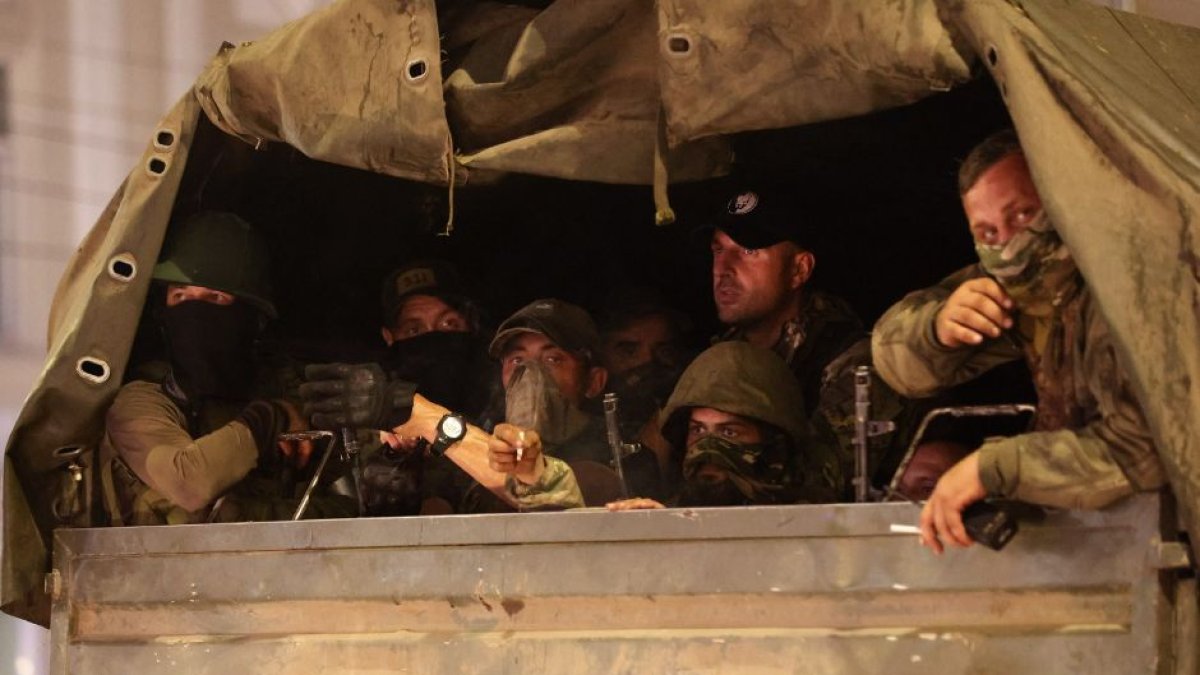Mutiny in Russia: What will happen to Prigozhin and the Wagner group?
Experts explain that the mercenary group will be partially absorbed by the Russian army and that the future of its operations in Africa is uncertain.

(Cordon Press)
As the troops of the Wagner group began to halt on the road they set out on Friday towards Moscow, their leader, Yevgeny Prigozhin, remained silent.
The weekend riot ended with an opaque agreement brokered by Belarusian President Alexander Lukashenko. One of the few details that emerged from the pact is that Prigozhin would go into exile on Belarusian territory. Several reports indicate that he is already there.
Dmitry Peskov, Vladimir Putin's press secretary, announced that no criminal charges would be brought against members of the group who staged the uprising. This comes despite the fact that the Federal Security Service (SFB) had initiated a case against Prigozhin that could have ended with a sentence of up to 20 years behind bars.
What will happen to Prigozhin? "It is not yet clear what Lukashenko is going to do with Prigozhin," Belarusian opposition figure in exile Sviatlana Tsikhanouskaya said in remarks picked up by AP.
Tsikhanouskaya opined that the decision would cause even more instability in Belarus, and recalled that Minsk "detained 33 Wagner mercenaries before the 2020 elections."
Belarusian politician and advisor Franak Viačorka noted that his country was not "Prigozhin’s dream destination." He argued that there were three possible scenarios: that Belarus would become Wagner's center of operations, that Prigozhin would rise as the leader of the offensive in Ukraine, or that he would be offered a "retirement job."
Prigozhin, however, could choose to leave Belarus. One possible destination would be Africa, where his mercenary entourage exploits natural resources and fights against local regimes.
Future of the Wagner Group
"For Wagner, this looks that it might be the end," opined Syracuse University researcher Brian Taylor, speaking to Al Jazeera.
"Wagner troops who did not particpate in this uprising are going to be integrated into the Ministry of Defense," the expert claimed, and then added:
“Russia's Crony Capitalism” author Anders Åslund noted that losing the mercenaries will be a significant departure for the Russian military, even warning that "it is difficult to believe that Putin will survive the mess he that has created for so long."
The only certainty for the time being, is that Russia will resume the fight against Ukraine. Even Wagner’s position on the African continent could be threatened, according to Florida International University professor John F. Clark.
Before the coup was deflated, Clark argued that Wagner would only maintain its international status if Putin was overthrown. If Prigozhin's private army lost, on the other hand, it would most likely pass under the command of the regular military, losing the freedom to operate as a private militia.
"My view is that Wagner is likely to continue to bring misery to the African continent in multiple forms," the professor of politics and international relations wrote, however.

























